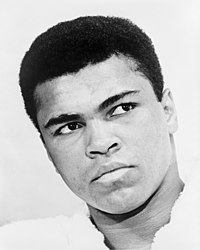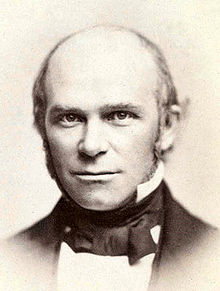...
Multiculturalism is the acceptance or promotion of multiple ethnic cultures, applied to the demographic make-up of a specific place, usually at the organizational level; eg, schools, businesses, neighborhoods, cities or nations. In this context, multiculturalists advocate extending equitable status to distinct ethnic and religious groups without promoting any specific ethnic, religious and/or cultural community values as central.
Friday, 25 March 2011
Mumia ABU-JAMAL (1954-)
Albert Chinụalụmọgụ ACHEBE (1930-)
...
Monday, 21 March 2011
Muhammad ALI (1942-)
Quotes about the Vietnam war:
I ain't got no quarrel with the Vietcong. No Vietcong ever(HAAS, Jeffrey [2009]. The Assassination of Fred Hampton: How the FBI and the Chicago Police Murdered a Black Panther. LAWRENCE HILL BOOKS. p. 27. ISBN 1-556-52765-9.)
called me Nigger.
No, I am not going 10,000 miles to help murder kill and burn(African-American involvement in the Vietnam war |date=1967 |accessdate=2010-05-25.)
other people to simply help continue the domination of white slavemasters
over dark people the world over.
Why should they ask me to put on a uniform and go ten thousand(HAAS, Jeffrey [2009]. The Assassination of Fred Hampton: How the FBI and the Chicago Police Murdered a Black Panther. LAWRENCE HILL BOOKS. p. 27. ISBN 1-556-52765-9.)
miles from home and drop bombs and bullets on brown people in Vietnam
while so-called Negro people in Louisville are treated like dogs and
denied simple human rights?
Thursday, 24 February 2011
Mab SEGREST (1949 - )
Social activism...
Friday, 18 February 2011
Viola Fauver Gregg LIUZZO (1925–1965)
Unitarian Universalist, civil rights activist from Michigan and mother of five, who was murdered by Ku Klux Klan members after the 1965 Selma to Montgomery marches in Alabama.
William STILL (1821 – 1902)
Often called "The Father of the Underground Railroad," Still helped as many as 60 slaves a month escape to freedom, interviewing each person and keeping careful records, including a brief biography and the destination of each person, along with any alias that they adopted, though he kept his records carefully hidden. He is one of the many who helped slaves escape from the United States. During one interview of an escapee, he discovered that the man, Peter Still, was his own brother. They had been separated since childhood, and his brother knew little about the rest of his family.
Thursday, 17 February 2011
Peg Leg Joe (????-????)
Peg Leg Joe was a sailor who led slaves through the Underground Railroad to freedom. He may have been a real person or composite of people but there is no reliable historical evidence of his existence.
Wednesday, 26 January 2011
Theodore PARKER (1810–1860)
Parker defied slavery and, in Boston, led the movement to combat and violate the Fugitive Slave Law of 1850, a controversial part of the Compromise of 1850. This required the return of escaped slaves to their owners by citizens of all states - free as well as slave - in assisting in the recovery of fugitive slaves. Parker worked with many fugitive slaves, some of whom were among his congregation. As in the case of William & Ellen Craft, he hid them in his home and, although he was indicted, he was never convicted. Theodore Parker called the law " a hateful statute of kidnappers", and saw to it that violation of the law was open and organized. Parker and his followers not only refused to assist with the recovery of fugitive slaves, but also helped to hide those whom southerners came to reclaim. They smuggled away Ellen & William Craft when a Georgian jailer came to Boston to arrest them. Due to Parker's effort, from the law's passage in 1850 to the onset of the American Civil War in 1861, the Fugitive Slave Law was successfully enforced only twice in Boston. And on both occasions, Bostonians combatted the actions with mass protests.
During the undeclared war in Kansas (see Bleeding Kansas and Origins of the American Civil War) prior to the actual outbreak of the American Civil War, Parker supplied money for weapons for free state militias. As a member of the Secret Six, he supported the abolitionist John Brown, whom many considered a terrorist, and wrote a public letter, "John Brown's Expedition Reviewed," defending John Brown's actions after his arrest, defending the right of slaves to kill their masters.







